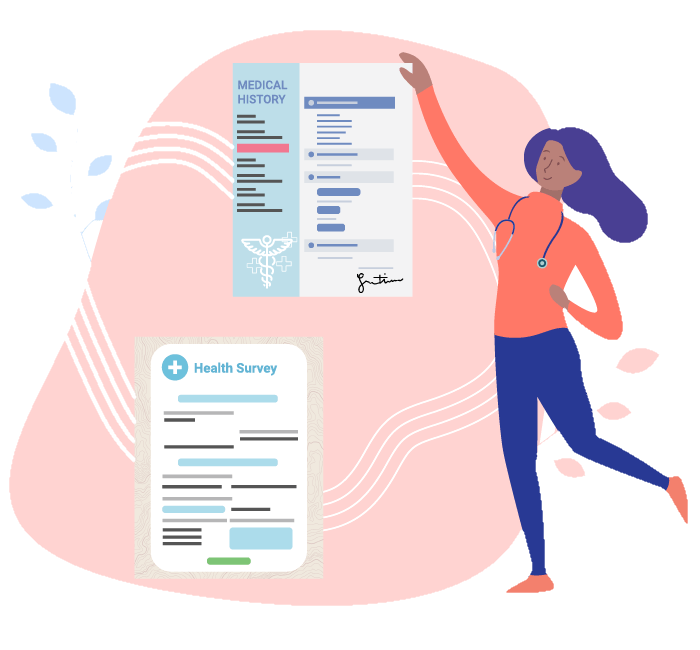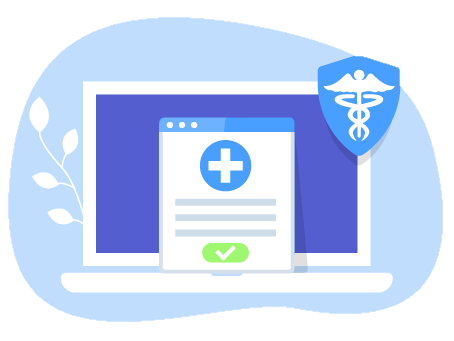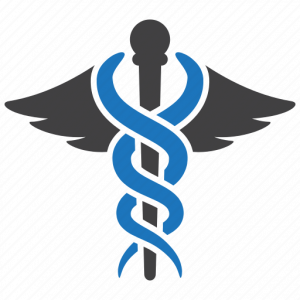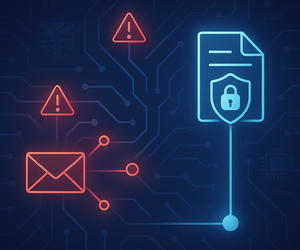When Compliance Matters Most
WHAT IS HIPAA?
The Health Insurance Portability and Accountability Act of 1996 is a US law that was passed to safeguard data and prevent it from falling into the wrong hands. HIPAA has been around for almost 30 years, so there is no excuse for not embracing the requirements and having your organization HIPAA compliant.

HIPAA RULES
Beginners HIPAA Compliance Guide
The Complete HIPAA Checklist
The team at HIPAA Made Easy went through the HIPAA Security, Privacy, and Breach Notification Rules; and the HIPAA Omnibus Rule to create this up-to-date checklist.


A DEFINITION OF HIPAA COMPLIANCE
The Health Insurance Portability and Accountability Act
HIPAA sets the standard for sensitive patient data protection. Companies that deal with protected health information (PHI) must have physical, network, and process security measures in place and follow them to ensure HIPAA compliance. Covered entities (anyone providing treatment, payment, and operations in healthcare) and business associates (anyone who has access to patient information and provides support in treatment, payment, or operations) must meet HIPAA compliance. Other entities, such as subcontractors and any other related business associates, must also be in compliance.
2024 HIPAA FAX GUIDE REVIEWS.
The Best HIPAA Compliant Fax Companies
HIPAA Fax Guide tested the largest and most popular HIPAA compliant fax services in 2024. Many of these companies offer basic low-volume plans for small healthcare providers, all the way to large enterprise plans, and electronic health records system integration. We considered several factors ranging from price to successful fax completion. We placed heavy emphasis on fax completion because additional features are meaningless if you can’t get the fax completed in the first place, but the companies we reviewed offer many features that are designed to create a positive experience for the general medical office. All the services we tested offered a BAA.

HIPAA TITLE I
Makes it possible to maintain coverage when your employment changes and you’re on a group plan. It also makes it unlawful for group insurance plans to turn down people they don’t want to cover or to build lifetime maximums into contracts.
HIPAA TITLE II
“Directs the U.S. Department of Health and Human Services to establish national standards for processing electronic healthcare transactions,” explained Jacqueline Biscobing in TechTarget 1. “It also requires healthcare organizations to implement secure electronic access to health data and to remain in compliance with privacy regulations set by HHS.”
HIPAA TITLE III
Introduces new tax rules related to healthcare treatment.
HIPAA TITLE IV
Includes additional details on reform of insurance law, with protections for those who have pre-existing conditions and individuals who want to maintain their insurance.
HIPAA TITLE V
Gives guidelines for life insurance policies that are owned by businesses and how to handle income tax specifics when someone has their US citizenship revoked.
 As you can see, the relevant section of HIPAA for IT providers, and for those processing, transferring, and/or storing health data, is Title II. This part of the law is often called simply the “Administrative Simplification provisions.”
As you can see, the relevant section of HIPAA for IT providers, and for those processing, transferring, and/or storing health data, is Title II. This part of the law is often called simply the “Administrative Simplification provisions.”
It establishes and describes these five elements:
National Provider Identifier Standard – 10-digit NPI (national provider identifier) numbers must be assigned to all healthcare entities.
Transactions and Code Sets Standards – An objectively approved protocol must be used in electronic data interchange (EDI).
HIPAA Privacy Rule – Patient health information must be protected. “Privacy Rule” is actually short-hand for the “Standards for Privacy of Individually Identifiable Health Information.”
HIPAA Security Rule – This rule delineates expectations for the safeguarding of patient data. “Security Rule” is short for the “Security Standards for the Protection of Electronic Protected Health Information.”
HIPAA Enforcement Rule – This subsection of the law provides parameters with which companies should be investigated for potential or alleged violations.
The requirements of HIPAA and its regulatory agency, the US Department of Health and Human Services (HHS), are not as rigid as they first may seem. We’ve detailed the broad concepts required to understand HIPAA or HIPAA compliant hosting in this article, which serves as a beginner’s HIPAA Compliance Guide; further below, you will find our HIPAA Compliance Checklist.
What is the Primary Purpose of HIPAA Regulations?
The HIPAA guidelines establish various responsibilities for CEs and BAs related to the health data of patients. These responsibilities are aligned with rights that the law grants to patients for the protection of their healthcare records.
Of fundamental concern to covered entities and business associates are the Privacy Rule, Security Rule, and Breach Notification Rule. The Privacy Rule creates standards for the privacy of PHI. The Security Rule establishes expectations for the handling of electronic protected health information (ePHI) to prevent unauthorized access. The Breach Notification Rule mandates that covered entities and business associates must alert any affected parties whenever their protected health information is compromised.
Together, these rules and regulations are designed to protect the health data of patients from unauthorized access by enumerating the responsibilities of covered entities and business associates who handle patient health information.
The Truth About Fax: What HIPAA Won’t Let You Do with Email
Managing patient records in compliance with HIPAA is a critical responsibility for healthcare providers. Retaining medical documents for the appropriate time is essential for regulatory compliance and patient care.
Replacing Fax? Why It Can Be a Technical and Legal Minefield
Managing patient records in compliance with HIPAA is a critical responsibility for healthcare providers. Retaining medical documents for the appropriate time is essential for regulatory compliance and patient care.
How to Train Staff on HIPAA-Compliant Faxing
(Without Boring Them to Death)
Managing patient records in compliance with HIPAA is a critical responsibility for healthcare providers. Retaining medical documents for the appropriate time is essential for regulatory compliance and patient care.






